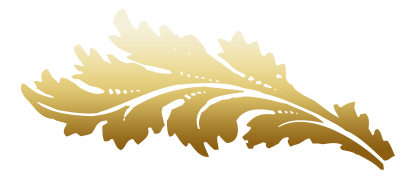Here is chapter 9 of George Orwell’s Animal Farm. This chapter will show us the utter evil of the pigs and their oppression is beginning to become a stark reality for the animals of the farm.
1 – This is a flat out lie as we will see later. There is no lush green pasture for those who are too old to work.
2 – This is a common tragedy in communist countries: starvation and famine. That is because most of the countries are isolated and cannot produce what is necessary for the population. It is also because the population must perform other tasks outside of their normal duties. In this case, the windmill needs to be rebuilt. This takes the animals time away from farming. The pigs are both blind to this and turn the other way. They do not think it is a bad as all that because the pigs are satisfied. Communist countries that have suffered from starvation and famine leading to tens of thousands of deaths include China under Mao, the Soviet Union under Stalin, Cuba under Castro, North Korea under the Kim family and Venezuela under the Chavez/Maduro regimes. By the way, Orwell is specifically talking about communist governments but this is really about tyrannical governments. Mao, Stalin, the Kim family, Castro, Chavez and Maduro were all dictators.
3 – The great lie we are even being told today. When life is dictated by a government, one can never be free. Suffering, risk and hard work are part of freedom. That is how one can rise above their current situation and become successful. That’s capitalism. Socialism promises nothing and gives no rewards for success. We will get that example with Boxer, the hardest worker on the farm, later in the chapter.
4 – This is the creation of the upper and lower class. The pigs were to be segregated from the rest of the population because the rest of the population was below them. What’s worse: the animals now had to work harder to build structures that only benefitted the pigs.
5 – Pure tone-deafness of the pig leadership. Or they just didn’t care. With the animals starving and not enough food being grown, the pigs take up much needed fertile land to grow barley for their luxury of beer.
6 – This is a prime example of military parades. These parades are meant to instill pride with its citizens and instill fear for their enemies. Though the animals did not have a vast army of large missiles to show their strength, the firing of the gun could be that intended intimidation.
7 – Do you ever notice tyrannical governments always refer to themselves as “democracy” or “democratic republics” even though they are clearly dictatorships or totalitarian communists? Union of Soviet Socialist Republic. People’s Republic of North Korea. People’s Republic of China. German Democratic Republic (East Germany under the Soviet Union). None of these countries practiced the political systems of the republic or democracy.
Also, we see the continued erosion of history. This is needed to continue with the “revolution” or “us and them” mentality.
8 – This metaphor is pretty obvious. Moses represents Moses from the Old Testament who led the Jews out slavery from the Egyptians and to the promised land. This could be a rebuke at the rejection of the animals for disavowing their god (God?) for the promises of earthly material things also know as utopia (heaven on earth).
I’m not sure I like that Orwell added this metaphor into this book. As far as I’m concerned, it’s too little, too late and it has not been something brought up since the beginning of the book. Not to mention, it has very little to do with the conclusion of the book. It’s almost as if Orwell wanted to add another page to the chapter.
9 – This is probably the second most powerful scene in the entire book. Boxer was a devout follower, almost a religious follower. This might explain the religious context from the Moses text. But, when his value to the collective ran its course, he was banished and his body, which had three years left, was used to profit the farm, leading to his death. See, the collective only sees people as commodities that are there to serve the collective. When the commodity cannot provide for the collective, it is cast away. To the tyrannical collective; in this case, communism, people are things that can be discarded.
10 – This is a threat. A warning. All dissenters will face the lash, the gulag or the guillotine.
11 – Something I want to conclude with. In this book, Orwell is trying to convey the evils of communism. But I rarely talk about communism. I talk mostly about the tyrant or tyranny. I do this because the country he is referring to, the Soviet Union, was not really a true communist or Marxist country. Neither are many of the “communist” countries. The were dictatorships. They may have started as communist countries but the, eventually turned into dictatorships.
Lenin, Stalin, Mao, Castro, Chavez, the Kim family, Maduro, Chavez, Hitler, Mussolini were all dictators that practiced either a socialist or fascist economic system. They were no different the open dictators like Bashar al-Assad, Ferdinand Marcos, Napoleon or Genghis Kahn.
Remember, tyranny is about power, and power can only belong to one. And it must be protected by the tyrant.
